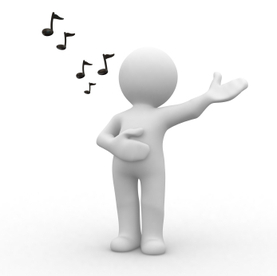You are currently browsing the daily archive for December 12, 2007.

Earlier, we discussed the Augustinian picture with reference to the meaning of music, and later compared music to the purpose of dance. We concluded that no model for music already exists in reality. A music theme or melody doesn’t have meaning because it approaches or corresponds to an extra-musical paradigm.
In this post we ask again: does music point to anything beyond itself? While we view the claim that music is transcendent as a piece of mystery-mongering or as piously sentimental, there is nonetheless evidence in Wittgenstein’s Zettel that music points beyond itself to something extra-musical:
For how can it be explained what ‘expressive playing’ is? Certainly not by anything that accompanies the playing. – What is needed for the explanation? One might say: a culture. – If someone is brought up in a particular culture – and then reacts to music in such-and-such a way, you can teach him the use of the phrase “expressive playing”. (Z 163)
According to Wittgenstein, the impression a music theme or melody makes on me is connected with things in its culture or environment. What things? For one, music is connected with language. One may say that it ‘points’ to the language. But what does this mean? Let’s consider some of the kinds of statement one makes when impressed by music:
a. ‘This theme expresses disagreement’.
b. ‘Here it is as though a conclusion were being drawn’.
c. ‘This theme replies to what came before’.
d. ‘The music is blue like every working Monday’.
e. ‘The repeat is necessary’.
These statements presuppose my understanding of and familiarity with expressions of disagreement, conclusions, replies, colors, necessity, respectively. They presuppose the meaning of these words in the language, and can only be explained by reference to the primary sense of the words, but not vice versa. The meaning of ‘blue’ in (d) is not like the blue of the sky, and we can just as little explain the meaning of “e” is yellow’ by comparing it with a sample of yellow (PI, p.216). The sense is just different here. We may say therefore that statements (a)-(e) employ the words in a ‘secondary sense’.
Music interacts with language. Our experience of music – one may talk thus – is as the rhythm and intonation of the language we speak every day; is as our daily thoughts and emotions. Music becomes a part of our language; it becomes incorporated in it. One never knows when one is making a memory – nonetheless, music and talk of it becomes a part of the collective memory of a culture. Minimally, we conclude that music ‘points beyond itself’ to language.

Recent Comments